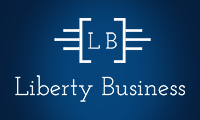Why is Getting Business Insurance Important?

Why Does Business Insurance Matter?
Getting business insurance helps you save time and money. It also keeps you away from stress and anxiety. Being prepared for potential risks is essential for business success. Murphy's first law is a popular epigram that states that "Anything that can go wrong will go wrong" There are some certain rules that can protect your business from bad fortune. If you follow these certain rules, your business will be safer, and you will not be in legal trouble. Another epigram states that “fortune favors the prepared.” We all have problems. The way we solve them is what makes us different.
Compliance with general business rules protects your business from potential failures:
- Obey rules and regulations,
- Hire a good attorney and do not hesitate to ask experts for help,
- Know your team, motivate, and inspire them,
- Do not neglect to purchase the necessary insurance policy, getting business insurance is vital,
- Be careful what you say and sign.
Business Structure is not Enough for Asset Protection
All types of small business owners from an online store to an accounting firm can protect their personal assets against business debt by choosing their business structure as LLC. However, this will not provide complete protection. The federal government requires every business with employees to have certain insurance. These are workers' compensation, disability, and unemployment insurance. Additionally, some states also require additional insurance, so visit your state's website to find out the requirements for your company. Getting business insurance can help you make sure both your personal assets and your business assets are fully protected from unexpected catastrophes and events.
The general rule for buying insurance is that you should insure against things you can not afford to pay for on your own assets. You may need assistance to find out what kinds of coverage makes sense for your business and compare terms and prices to find the best deal for your business.

Getting business insurance supports your business success.
What Kind of Business Insurances Are Mandatory for Employers?
Workers’ Compensation
Workers’ Compensation covers employees’ compensation for injuries or disabilities sustained as a result of their job. The employees waive the right to sue their employers if they accept compensation benefits. However, it does not act as unemployment benefits or disability insurance. Compensation plans offer coverage of medical fees related to injuries incurred as a direct result of the job. Workers' compensation also makes payments to dependents if a worker dies as a result of their employment. Getting business insurance can sometimes be perceived as a complex issue. Since there is no federal regulation for workers' compensation, there may be very different regulations in different states for the same type of injury. For this reason, it is necessary to get expert attorney support.
Unemployment Insurance
Unemployment insurance provides cash benefits to eligible workers. It is a joint state-federal program that is administered by each state, but states follow the same guidelines established by federal law.
US Department of Labor says you can apply for unemployment insurance benefits if you:
- Are unemployed through no fault of your own. In most states, this means you have to have separated from your last job due to a lack of available work.
- Meet work and wage requirements. You must meet your state’s requirements for wages earned or time worked during an established period of time referred to as a "base period." (In most states, this is usually the first four out of the last five completed calendar quarters before the time that your claim is filed.)
- Meet any additional state requirements.
Disability Insurance
Disability Insurance allows employers to give partial wage replacement insurance coverage to their eligible employees for non-work-related sickness. Getting business insurance is compulsory in some states. Employers located in some states such as California, Hawaii, New Jersey, New York, Puerto Rico, and Rhode Island are required to purchase disability insurance. Ask professionals to determine if this coverage is required by your state.
There are two types of disability policies:
Short-Term Disability policies (up to two years)
Long-Term Disability policies (from a few years to the rest of your life or until the disability ends)
Before buying a Disability Insurance Policy, buyers should consider the following questions.
- How is disability defined?
- When do benefits begin?
- How long do benefits last?
- How much money will the policy pay?

Choose the best type of business insurance policy
Which Business Insurance is Best for Your Business?
There are six common kinds of business insurance for business owners:
- General liability insurance,
- Commercial property insurance,
- Professional liability insurance,
- Product liability insurance,
- Business owner’s policy,
- Home-based business insurance.
General liability insurance (GLI) protects against financial loss as the result of bodily injury, property damage, medical expenses, libel, slander, defending lawsuits. Getting business insurance, especially GLI, also helps cover infringement on intellectual property contractual liability, tenant liability, and employment practices liability, settlement bonds, or judgments.
Commercial property insurance protects your business against loss and damage of company property due to a wide variety of events such as fire, smoke, storms, vandalism, and civil disobedience. Commercial property insurance provides more coverage than homeowner’s insurance. It is more suitable for home-based businesses. Commercial property insurance helps protect your buildings, equipment, furniture, tools, and inventory.
Professional liability insurance. If your business provides services to your customers, professional liability insurance (also known as errors and omissions insurance) protects you against financial losses as a result of malpractice, negligence, and errors. It is important to note that professional liability insurance is obligatory in some states and some industries.
Product liability insurance protects against financial loss as a result of a defective product that causes injury or bodily harm, and the legal fees that could otherwise lead to major difficulties. It is not merely a product guarantee or warranty. People can be harmed by how a product is manufactured, designed, misused, or marketed. Getting business insurance, especially product liability insurance, protects your business from the consequence that occurs in the event that a product causes damage to third parties.
Insurance Policy Combinations
A business owner’s policy combines both property and liability coverage into one package. It covers property insurance for buildings and contents owned by the company, liability protection, and business interruption insurance, which covers the loss of income resulting from a catastrophe that disrupts your business operations. Remember that it does not cover professional liability, worker’s compensation, health or disability insurance, and auto insurance.
Home-based business insurance. According to the U.S. Small Business Administration, more than half of America's businesses are home-based, but homeowners insurance will not adequately protect business operations.
Home-based business insurance can offer protection for a small amount of business equipment and liability coverage for third-party injuries but will not offer liability protection or cover you for lost income or data.
Getting business insurance, you need largely depends on what you do and have. You may need to purchase a special insurance policy, such as an ERISA fidelity bond for your business. An ERISA fidelity bond is a type of insurance that protects the plan against losses caused by acts of fraud or dishonesty. Fraud or dishonesty includes, but is not limited to, larceny, theft, embezzlement, forgery, misappropriation, wrongful abstraction, wrongful conversion, willful misapplication, and other acts.
Getting Business Insurance Against Cybercrime
With the increase in e-commerce, we use more internet in our business, and the need for information technologies is increasing. According to the 2018 State of Cybersecurity in Small and Medium-Sized Businesses report, cybercrime continues to grow rapidly around the world, with annual costs to the global economy estimated to reach over US$2 trillion by 2019.
Small businesses are becoming more concerned about cyber risks and are taking some proactive security steps. Cybersecurity Ventures predicts cybercrime damages will cost the world $6 trillion annually by 2021, up from $3 trillion in 2015. Cyber Liability Insurance and Auto (hired and unowned) Insurance may be an essential part of your business, but we are planning to explain them in detail later.
When getting business insurance, assess your risks and assets, ask an expert, and re-assess your risks every year.
In summary, you must follow some simple but important rules to protect your business and personal assets:
- Obey rules and regulations,
- Do not hesitate to ask experts for help,
- Know your team, motivate, and inspire them,
- Do not neglect to get business insurance,
- Be careful what you say and sign.
To start and run your business in the US, you need a lot of documentation to be prepared. Assessing your risks and getting business insurance for your business can be time-consuming and detailed. You cannot be an expert in every subject you need. An expert consulting firm you can trust will save you time and money.
Comprised of experienced business attorneys, marketing experts, business advisors, and blockchain professionals, Liberty Business has the answers to any questions or needs a blossoming business may have.
